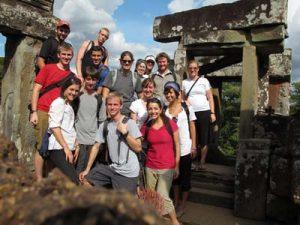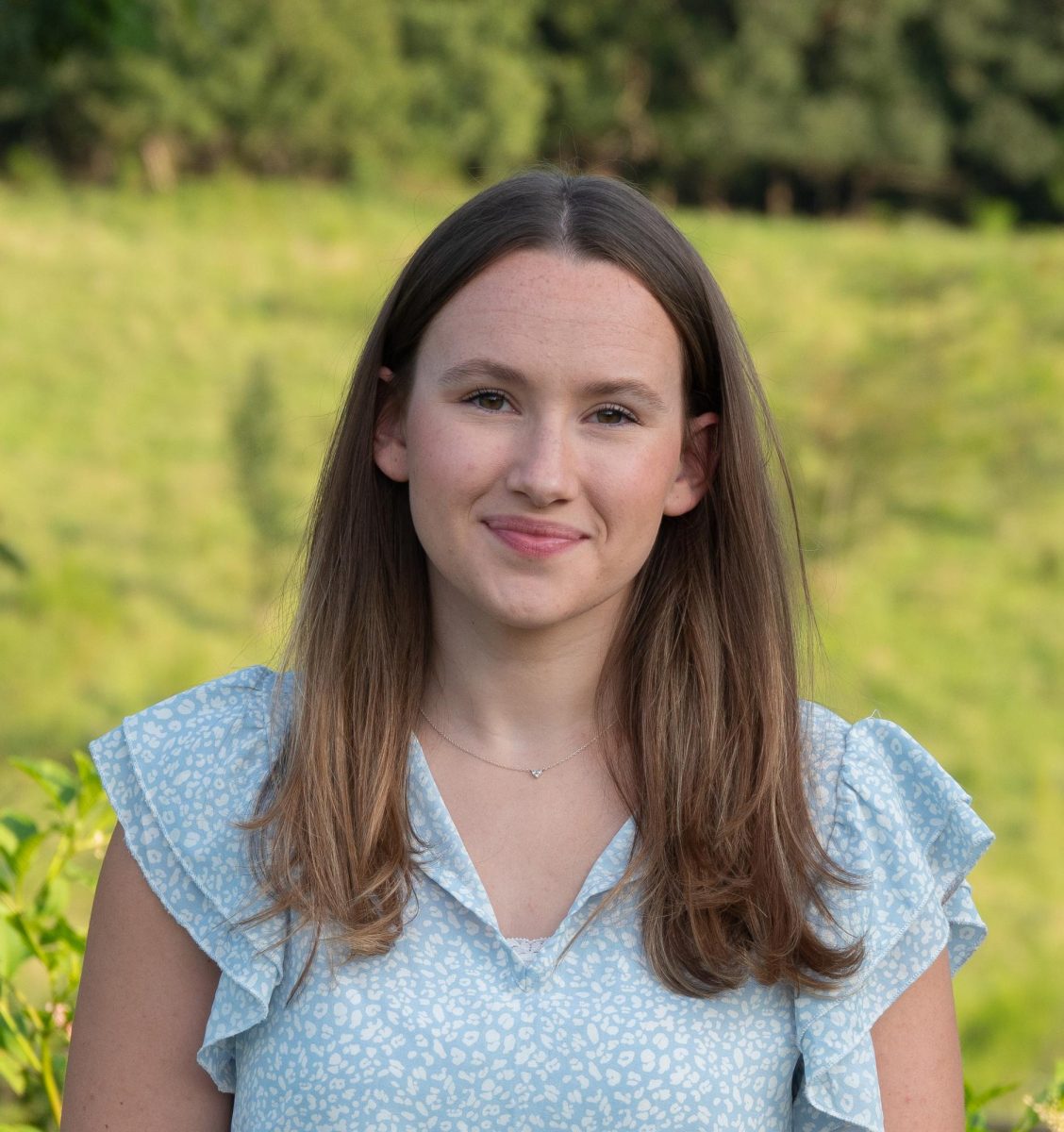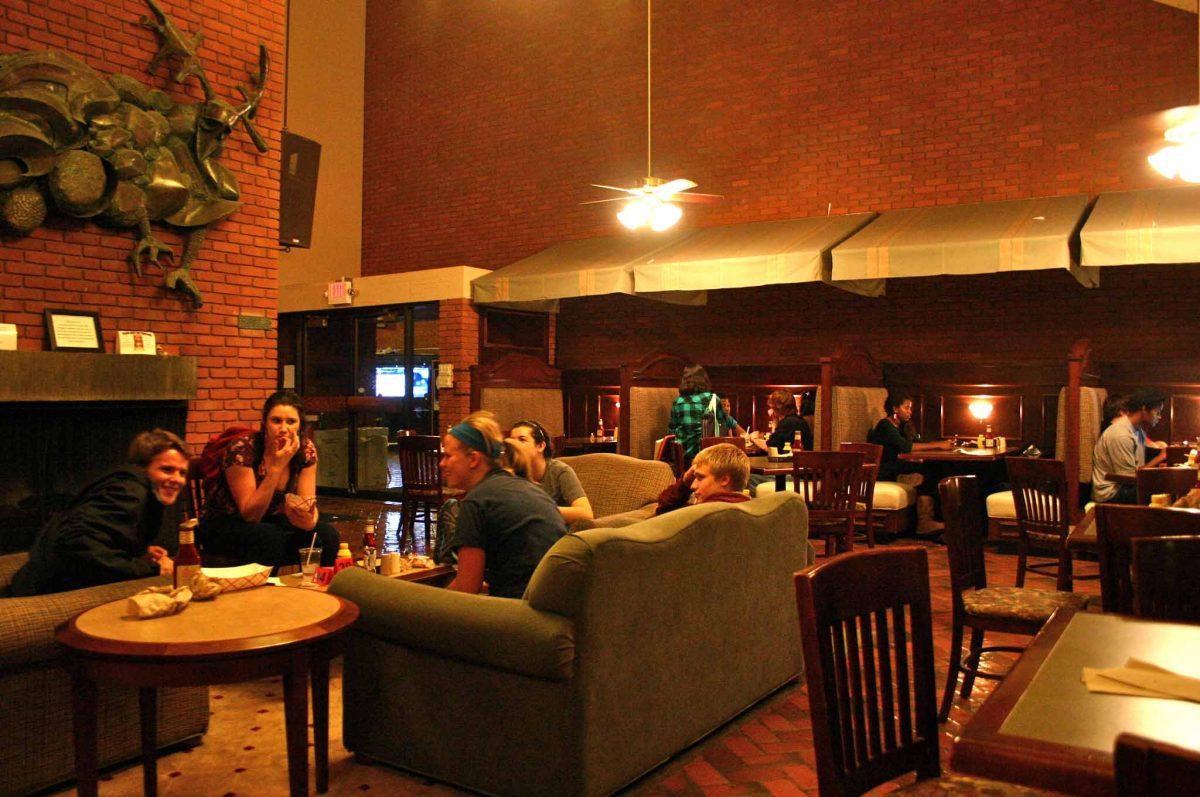Principia boasts an outstanding number of students who study abroad, and for those students, it’s a life-changing experience. Every student has the opportunity to apply for a Principia Abroad Program, and faculty are always proposing new abroads.
In the fall of 2007, Sally Steindorf led the first Principia abroad to India. This past November she returned with a second group. After a week and a half of orientation on campus in September, the abroad group flew to Delhi for an introduction to India before traveling to Udaipur for a four-week research and home-stay period. After Udaipur, the group went on a camel trek and saw the Taj Mahal before traveling in and around Dharamshala to interview Pakistani and Tibetan refugees. For Steindorf, who has lived and studied in India extensively, it’s anything but novel, so for her the trip was about seeing India through the students’ eyes. She said, “In that way it [becomes] a new trip for me every time.”
She added that India is one of the more challenging destinations for Principia abroad groups “because of the amount of poverty … and how different the culture is in so many different ways.” She said that some of the most important qualities for members of an India abroad group are a strong spiritual base and openness to these differences. Brian Twitchell, a senior on the India abroad this fall, said, “We had a wonderfully diverse group, but we supported each other at the same time.” Steindorf finished by saying that students should also be patient and flexible, “because India’s a place where the day starts and you have no idea how it’s going to end, and half the time it’s not up to you.”

Over winter break, Asian studies and business professor Linda Bohaker accompanied political science professor John Williams on a four-week abroad to Vietnam and Cambodia. Williams had previously led two separate trips that included Vietnam over eight years ago, but this time around it was a team-taught program. In the fall, Bohaker taught the abroad group Japanese history and Williams taught the group Chinese politics, and then, as soon as the quarter ended, they left for Vietnam. Bohaker explained that the larger context of that class was defining a country’s identity, and “the different lenses you can look through to help you understand a country.”
Bohaker added that it would be hard to do a ten-week program in Vietnam, and that it was really a fourteen-week program, as they spent the ten-week quarter creating a context for the trip before leaving. Once in Vietnam, the group visited temples and museums in a handful of cities, while at the same time each student was preparing for a research paper that was due earlier this quarter. Research topics ranged from the Vietnamese family to sports in Vietnam, each examining some aspect of contemporary Vietnamese society. The abroad, Bohaker said, “was about looking at Asia from an Asian perspective. It wasn’t about us as Americans looking at it.”
Another group of students is preparing this quarter for an abroad to Peru in the spring. Spanish professor Cecily Quintanilla will be leading the trip along with former biology professor Gary Fleener and Resident Counselor Garry Sprague. The program will look at both the cultural and the physical landscape, said Quintanilla, including language study and home-stays, volunteer work, research projects, trekking and outdoor exploration, and travel. Quintanilla said, “Peru offers so much … it is a developing country that is facing many of the problems that many developing countries do [such as] rural migration to the cities … There’s this pull between the traditional ways and the forces of modernity … pride in that [rich indigenous] heritage instead of the tendency to minimize or not give full rights and benefits to the indigenous population.” Duncan Wilder, a sophomore in the Peru abroad group, said, “What I’m most looking forward to is the home-stay with our Peruvian family in Cusco, as well as seeing the ancient Incan ruins.”
This summer, geology professor Janis Treworgy will be taking her second group of students to Mongolia. In 2007, John Williams and Treworgy led a combined political science/geology abroad, and Treworgy took over afterwards so that Williams could continue leading the China program. This time, Treworgy will be accompanied by Karin Holser, a marine biologist from the Pribilof Islands off the coast of Alaska, and Resident Director Josh Sprague, who was the RC on the 2007 abroad as well. After beginning with two days in Beijing, China, the trip will include trekking and camping in the Altai Mountains, paleontology and sustainability in the Gobi Desert, and field biology sSouthwest of Ulaanbaatar, the country’s capital. Treworgy said that the students who have applied so far are a mix of geology and/or biology majors as well as a good number of students from other disciplines.

This fall, a group of students will travel to Nepal for the first time since Gary Fleener led a program in 2001. Biology professor Mike Rechlin has lived and worked extensively in Nepal, and began planning the trip two years ago. He then asked philosophy professor Chris Young to join him because, according to Young, the abroad office is most interested in inter-disciplinary programs these days. In December, the two of them went to Nepal to put their plan into action and work out all the details. Like the group that Fleener led, this fall’s group will study Nepali at the Cornell Institute of Language in Katmandu and work with Three Sisters Adventure Trekking and Empowering Women of Nepal, an organization that trains female trekking guides and improves the lives of disadvantaged women in Nepal. But, unlike Fleener’s group, this program will spend time in the Jumla district and work with the Institute of Forestry, where Rechlin has taught as a guest professor on several occasions.
Young, who will teach the students an on-the-road course about Living Religions of the East, said, “Everywhere you go in Nepal is a religion lesson, because everything is connected to the religion … Hindu and Buddhist temples are side-by-side.” That said, Hinduism and Buddhism are the primary religions in Nepal, so the program will start with a week in Delhi, India, where Muslim, Sikh, and Mahai temples are also prevalent. Rechlin and Young are looking for students that are metaphysically grounded and willing to be placed far out of their comfort zone. Young said, “It’s going to be a tough abroad, both mentally and physically … for students, but we see it as a great opportunity for people to grow from that.”
While Rechlin, Young, RC Stephanie Loveseth, and students are braving Nepal, Bohaker will be leading her seventh abroad group to Japan. At this point the program is logistically solid, and she said that what changes year to year is what’s happening in Japan at the time and what the big issues are. She said, “We look at history, [we] look at different turning points in Japanese history, [we] study what a turning point is, and then we look at Japan today and we say, ‘Is Japan currently at a turning point?’” Currently, the biggest issues are with security and what Japan’s role should be globally.
Bohaker added that so much of it depends on the students and what they’re interested in. In general, the Japan abroad attracts a wide variety of students, and Bohaker said that she’s had many students take the love they develop for the country and the culture and translate that into post-college life. For example, she had one student who, since going on the abroad, has married a Japanese person and start a family, and another who’s in graduate school in Japanese studies. Bohaker herself went on a Japan abroad as a student, and later developed a deeper interest in the country and got her master’s degree in Japanese studies.
In winter quarter 2011, Quintanilla will be off to South America again for the first ever Brazil abroad. Quintanilla recently began offering low-key Portuguese classes on campus, and based on the large amount of people that showed interest, decided to test out an abroad. Brazil is one of the BRIC countries (referring to the quickly-developing nations of Brazil, Russia, India, and China), and Quintanilla said that it’s becoming a big-time player both within the hemisphere and throughout the world. After a week in Såo Paulo and language study and home-stays in Salvador, the abroad group will study sustainable solutions in Curitiba, a city in Southeast Brazil that has been a green city for over 30 years.
In his Sustainable Development classes on campus, Michael Rechlin has used Curitiba as a case study, and during the abroad, he will join the group for three weeks to teach a course more specific to Brazil, looking at the use of sugar-based ethanol and other innovations. The abroad will also focus on the social arena and the social developments made by the well-known Brazilian president Luiz Inacio Lula da Silva, who will just have finished his second term in office. According to Quintanilla, 19 million people have come out of poverty thanks to Lula’s work, and the abroad will take a look at some of his social programs and work with a Brazilian Non-Governmental Organization.
After the Brazil abroad returns, John Williams will lead an abroad to China and the Silk Road, which will focus on Chinese culture, religion, and politics. At the same time, English professor Dinah Ryan will lead a trip to Prague with a focus on creative writing and studio art.
And finally, Principia’s first year on the semester system, 2011-2012, will begin with an England abroad in the fall, led by English professor Heidi Snow. In the spring, French professor Helene Brown will lead a group to the French cities of Paris and Nice. This abroad will give students of any major a chance to learn about French history, culture, and language.
With the semester system, abroads will continue to study for no more than ten weeks in-country, but abroad groups will have the opportunity to spend more time on campus as part of the program. Finally, in the weeks following graduation — also known as Maymester — biology professor Michael Booth and David Oakes, the co-director of CELL (the Center for Ecological Living and Learning), will lead a mini-abroad to Iceland, focused on sustainability through community.
Principia abroads go to countries all over the world and study all sorts of things, but the basis of every program is the practice of Christian Science. Bohaker said, “[Students’] own spiritual growth is what’s really important to me. I love seeing students have to rely on God more and learn more about who they are as God’s child … The vehicle for doing that [is] getting to learn about this great country and culture and do all this fun, interesting stuff, but to me the larger context is that spiritual growth and character growth.”
AND THE GUATEMALA TEST DRIVE
After fall quarter ended, five Spanish students participated in a pilot language study program in Guatemala. Quintanilla, who led the four-week trip, said she was looking for ways to motivate them to continue taking Spanish classes. She decided to give students the option of taking their 103-level course in-country, learning language in context, in hopes that having the opportunity to learn in a whole different way and really experience the culture would strengthen their love of the language and their desire to learn more.
Quintanilla said that programs like this may help the college to “internationalize and to build our global awareness and even our global presence.”
The pilot program consisted of three weeks at an intensive language school in Antigua — a historically preserved World Heritage city close to the capital — where each student worked seven hours a day, one-on-one, with a different teacher each week. The group also spent a weekend at Tiqal, the Mayan archeological site, and volunteered at a house for malnourished children. The students also hiked up a live volcano and experienced firsthand the seismic nature of Guatemala and the impact that it has on daily life.
Two of the students liked the experience so much that they decided independently to stay on another week and continue their studies, Quintanilla said, and all five of them became more motivated as a result.
Quintanilla concluded, “I think it’s important to have new offerings and to put new things out there.” Her hope is that in-country language modules (ICLM) like this one will become more widely available, in order to “reach many students who might not otherwise apply to an abroad or have an international experience during college.”







